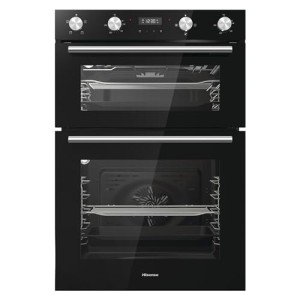Guide To Builtin Ovens: The Intermediate Guide On Builtin Ovens
페이지 정보
작성자 Maya 댓글 0건 조회 9회 작성일 25-05-20 21:47본문
The Rise of Built-in Ovens: Enhancing Modern Kitchens
In the ever-evolving world of home enhancement, built-in ovens have emerged as a staple in modern kitchen style. These appliances not just use a sleek and smooth aesthetic but likewise contribute significantly to the performance and effectiveness of home cooking. This article explores the numerous elements of built-in ovens, including their benefits, types, installation considerations, and maintenance, together with frequently asked questions to provide a detailed overview.
What is a Built-in Oven?
A built-in oven is a device created to be installed into kitchen cabinets, offering it a streamlined appearance and freeing up counter area. Unlike conventional freestanding ovens, which stand builtin oven alone and are often large, built-in ovens fit flush with kitchen cabinetry for a more integrated look. They are readily available in numerous sizes, designs, and features, catering to a large range of cooking requirements and kitchen styles.
Advantages of Built-in Ovens
Built-in ovens featured numerous advantages that make them attractive to homeowners. Below are a few of the key advantages:
- Space Efficiency: Built-in ovens save counter area while optimizing kitchen designs.
- Personalized Design: They can be integrated into cabinetry, permitting property owners to customize looks according to individual taste.
- Enhanced Performance: Many built-in bulit-in ovens come geared up with sophisticated cooking innovations, enabling much better heat distribution and faster cooking times.
- Ease of access: Their installation at eye level makes it simpler to inspect food without flexing down, supplying higher benefit and security.
- Resale Value: A modern, well-designed kitchen can improve residential or commercial property value, making built-in ovens a financial investment worth thinking about.
Types of Built-in Ovens
Built-bulit in oven ovens can be categorized based on their style and function. The following list outlines the typical kinds of built-in ovens readily available on the marketplace:
- Single Ovens: A basic design that features one cooking compartment.
- Double Ovens: These included 2 different compartments, which enable cooking several dishes at various temperatures.
- Wall Ovens: Installed into the wall for a space-saving service, these ovens offer convenience and ease of access and can be either single or double.
- Steam builtin ovens: These utilize steam for wet cooking and are often preferred for healthier meal preparation.
- Convection Ovens: Designed with a fan that circulates hot air, guaranteeing even cooking and browning.
| Type | Description | Ideal For |
|---|---|---|
| Single builtin oven | One cooking compartment for standard baking and roasting. | Small households and kitchens. |
| Double Oven | 2 compartments for simultaneous cooking of various meals. | Large families with varied menus. |
| Wall Oven | Built into the wall for easy gain access to. | Space-conscious kitchen areas. |
| Steam Oven | Cooks using steam for healthier options. | Health-conscious people. |
| Stove | Flows hot air for even cooking and faster outcomes. | Baking lovers and chefs. |
Installation Considerations
Picking to set up a built-in oven involves a number of considerations to make sure that it fits perfectly within the kitchen. Essential aspects consist of:
- Cabinet Dimensions: Accurate measurement of the cabinet area needed for the oven is crucial for an appropriate fit.
- Power Supply: Built-in ovens generally need a dedicated power supply; seeking advice from a certified electrical expert might be necessary.
- Ventilation: Ensure that the oven's ventilation requirements are met to promote safe operation.
- Regional Building Codes: Compliance with regional codes is vital when installing any kitchen home appliance.
It's highly recommended that setup be carried out by professionals to ensure safety and adherence to maker requirements.
Upkeep of Built-in Ovens
Keeping built-in ovens is important to ensure their longevity and operation. Below are some ideas for effective upkeep:
- Regular Cleaning: Wipe down surface areas after each use to avoid build-up; consider self-cleaning alternatives if readily available.
- Examine Seals: Inspect the oven door seals frequently for wear and tear to preserve effectiveness and prevent heat loss.
- Calibrate Temperature: Occasionally check and change oven temperature settings if cooking outcomes are irregular.
- Expert Servicing: Schedule routine upkeep with qualified technicians for electrical parts and much deeper cleaning.
Regularly Asked Questions (FAQs)
Q1: How do I pick the ideal size built-in oven for my kitchen?
A1: Measure the readily available cabinet space and think about the cooking routines of your family. Single or double ovens prevail choices based on meal preparation needs.
Q2: Are built-in ovens more energy-efficient than freestanding ones?
A2: Built-in ovens can be more energy-efficient due to better insulation and advanced cooking technology; nevertheless, actual performance depends on the specific model and use.
Q3: Can built-in ovens be set up anywhere in the kitchen?
A3: Built-in ovens require particular cabinets and might require a devoted power source, so preparing their placement carefully within the kitchen layout is vital.

Q4: What kind of upkeep do built-in ovens need?
A4: Regular cleaning, inspecting door seals, adjusting temperatures, and expert servicing as needed are all parts of appropriate maintenance.
Built-in ovens are an impressive addition to modern-day kitchen areas, offering both aesthetic and practical advantages. Their space-saving style, personalized options, and advanced features accommodate diverse cooking needs. When considering a built-in oven, homeowners should take into consideration their particular culinary choices, kitchen design, and upkeep capabilities. By doing so, they would be making a valuable investment in their home, increasing both functionality and style.
- 이전글가족의 유대감: 어머니와 아버지의 사랑 이야기 25.05.20
- 다음글10 Things That Your Family Teach You About Extractor Fan For Island Hob 25.05.20
댓글목록
등록된 댓글이 없습니다.
 카톡상담
카톡상담